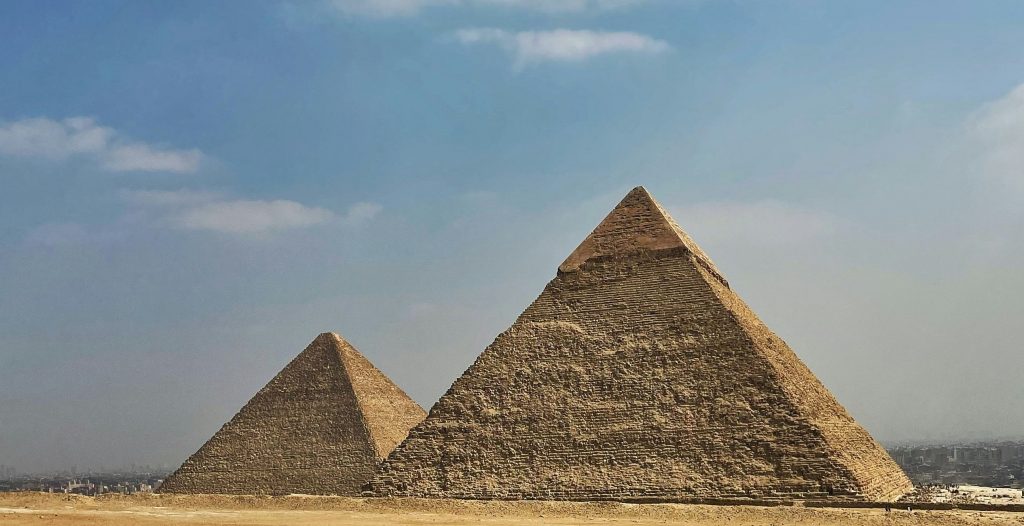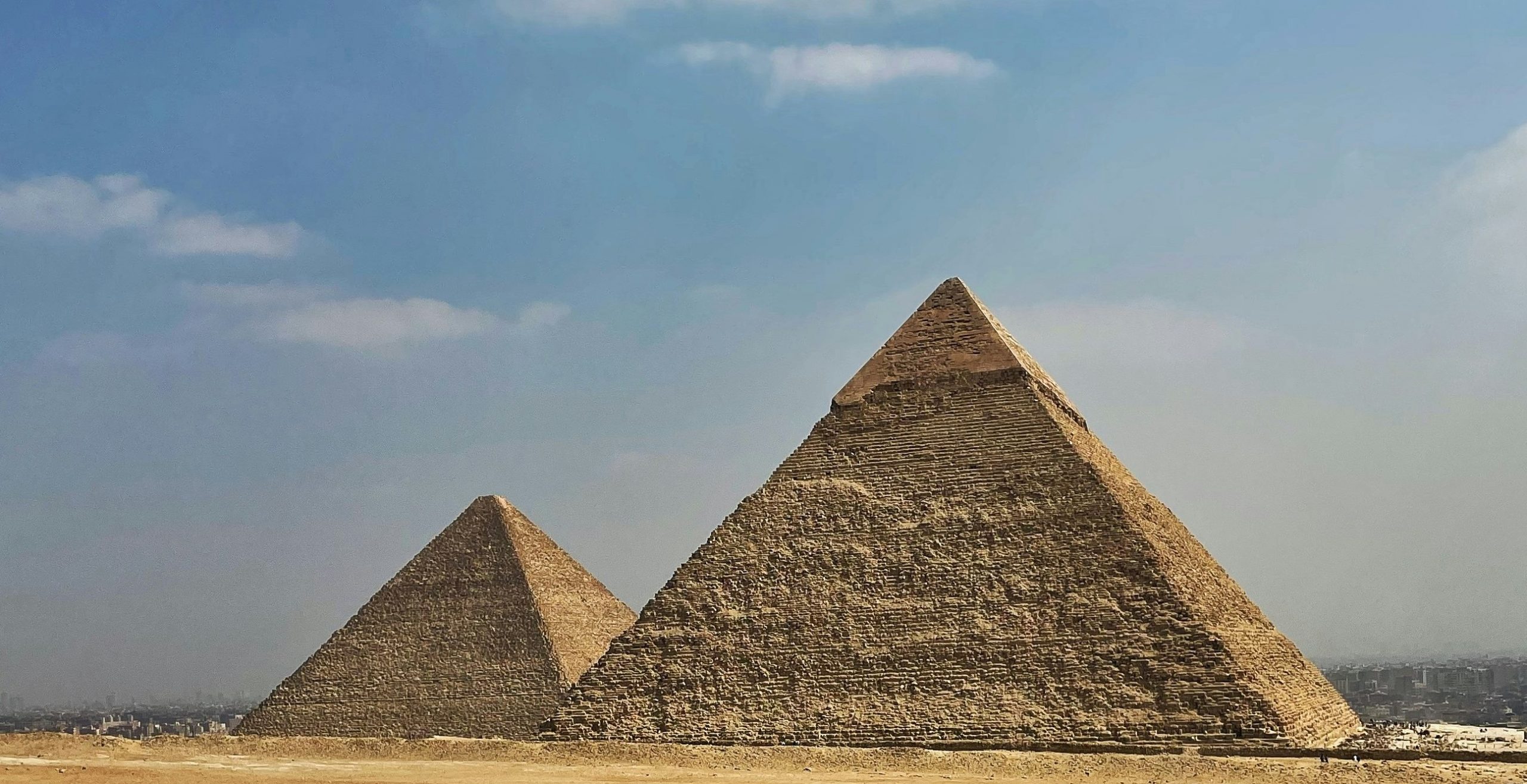The Story of Pharaoh’s Mountain

Pharaoh’s Mountain is the ninth book in my little library of fiction, and it certainly qualifies as something different: a pre-history and political thriller set at the time of the building of the Great Pyramid of Khufu (circa 2550 BC). Some may well be wondering how the hell did I get here from high fantasy novels of wizards, warriors, and dragons? Well, I’ll tell you…
Truth is, Pharaoh’s Mountain was my first novel, written back in the early 80s when I was still a newbie. Which means it required about 40 years to complete, even longer than it took to build the pyramid itself. Back in 1984, the first draft was good enough to get me a literary agent who, in turn, got me a hard look from New American Library. However, the NAL editor wanted me to turn the book from action/adventure to a pre-history. In 1980, Jean Auel had published The Clan of the Cave Bear, the first of the Children of the Earth series, and it had taken the literary world by storm, introducing the genre of pre-history to the American public. The editor wanted to cash in on that trend.
Well, with some vague guidance from the editor and agent, I duly set to work on a massive revision of the manuscript, taking it from about 80,000 words up to 113,000. I had already done a fair amount of research for the original novel, much of which had been for my own background, so now, I used that material to concoct the Cult of Isis and its conflicts with the Cult of Horus outside the pyramid. More, I included four chapters of Prince Khafre’s campaign against the rebels in Upper Egypt that was occurring at the same time, giving a wider view of both Egypt and the culture. The epilogue is all that currently remains of those Khafre chapters.
The editor was pleased with the results and extended an offer of publication, and I felt I was on the verge of a major career launch. But cruel fate intervened. We were actually waiting for the contract to arrive when Viking/Penguin bought NAL and installed their own editorial staff who put a freeze on all projects, pending review. They ended up rejecting my manuscript. It was a horrible blow at the time, but in retrospect, I’m actually kind of glad it happened. It really wasn’t a very good book at that stage (as can be seen by the rejection and no other houses picking it up), and it gave me the chance to work on it until I got it right.
Over the following decades, I would periodically pull the manuscript out and paw over it again, the book going through a series of transformations like it didn’t know what it wanted to be when it grew up. I tried trimming sections, then adding back more, the work oscillating between action/adventure, pre-history, and even political thriller. But the one aspect that I was unconsciously contributing to each re-write was my steady improvement as an author. I was writing those other eight books and learning and improving my craft with each one, and those improvements guided my hand as I refined Pharaoh. It’s now a much better book than it was in 1985.
So, there I was, in my late 60s, with this mutant novel, a writing albatross I had been wearing around my literary neck since the 1980s. Should I do the merciful thing, throw it in the recycling bin, and bury it with the mountain of other material that I had scrapped out over the years? Delete button, empty trash, be free of it once and for all? Well, it came close. Even though I knew how much the book had improved over the years, it really didn’t fit with my other novels, a pre-history sticking out like a throbbing red thumb from amid the fantasies and techno-thrillers. But that contrast also supplied the final part of this enormous puzzle, the missing key to the construction of the pyramid. The suggestion of magic.
Magic has acquired a bad reputation in our nomenclature. We use the term to explain the impossible or to offer a bridge in knowledge (the IFM ploy to explain something: “It’s F***ing Magic”). But just because we don’t understand how it works doesn’t mean this thing we call magic doesn’t exist. Every time a society falls, a massive amount of skills and knowledge fall with it, and our highly technical world has trained us to see things through technical eyes, blinding us to other possibilities. The existence of the pyramids, built by a supposedly primitive people who didn’t even possess the wheel, is proof that they knew something we don’t, that their world was built on principles and skills we don’t even suspect. Something we would term “magic”. To understand how the pyramids were built, I suspect we first must “unlearn” a great deal of what our system has taught us, and nobody has yet taken that approach.
So, I rewrote the manuscript one last time, weaving an element of magic into the story, and I was really delighted with the result, the final element tying so many of the strands together. So, what’s changed from that 1985 edition? Well, the original had almost no sex (I was a prude as a young man), there was no plot to overthrow the Pharaoh Dedefre, and, oh yeah, I killed off the main character at the end. This version is a lot more fun. John Blumen supplied a wonderful cover (did you spot the “easter egg” hidden in thew shadows on the side of the pyramid?), and my daughter Barbara has done a fantastic job of promotion, giving this book perhaps the best chance of success of any of my works.
Who knows? Perhaps editors at New American Library will end up shaking their heads and saying “Damn! That’s one that got away!” Well, I am a writer of fantasy…

Leave a Reply